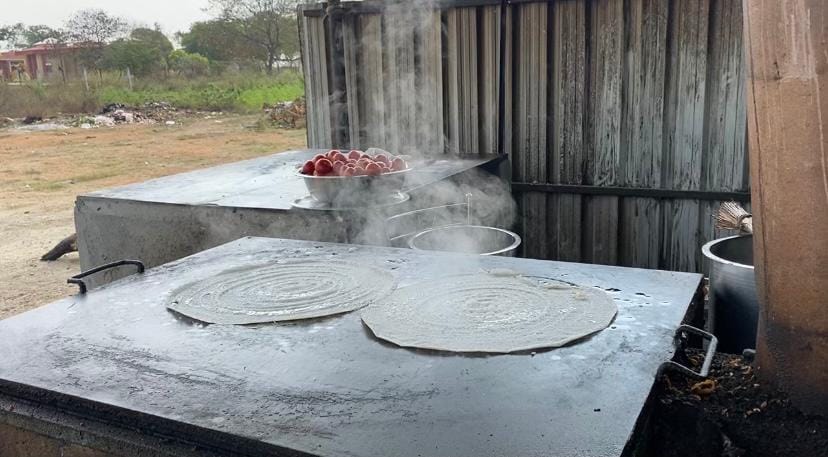Salem, Edappadi, Namakkal, Erode: The election campaign in western Tamil Nadu is frenetic, but there is one ubiquitous figure on posters, in speeches, and even in voters’ minds. Over four years after her death, this region, an AIADMK bastion, is still singing paeans to former chief minister J. Jayalalithaa, or ‘Amma‘ (mother), as she was fondly addressed.
Much of this was on display some 50 km from the city of Salem, where many houses sported the ‘two leaves’ symbol of the AIADMK along with Amma written in bold letters. Though a few houses were interspersed with images of current Chief Minister Edapaddi Palaniswami and his deputy O. Panneerselvam, Amma dominated the lot. All AIADMK posters pay homage to the former CM.
“She didn’t just live for herself, but for everyone… Puratchi Thalaivi Amma, you will live forever,” one kind of poster in Salem read.
Even in Edappadi town, Palaniswami’s stronghold where he has been an MLA since 1989, the party banners read: “With the blessing of Puratchi Thalaivi Amma, the victory candidate will be Hon’ble CM Edappadi Palaniswami, who is from this land and the farmers’ shining star.”
Another interesting facet is that Prime Minister Narendra Modi and Union Home Amit Shah find substantial space on campaign vans and autos, even though votes are only being canvassed in Amma’s name. But even that may not be enough for the AIADMK-BJP alliance in the polls.
One woman who sells fruit in Salem told me that Covid-19 came to India because of Amma’s death, and that it was Prime Minister Narendra Modi who was responsible for the pandemic afflicting the country.
Another Salem resident, a nurse, explained that for the past 20 years, she was a supporter of Amma, but was now going to ditch the AIADMK.
“I voted for Amma the last time but the BJP keeps speaking about throwing away Muslims, why should I vote for them? If Amma was here she would’ve never let this happen,” the nurse said.
Also read: Religion rap, memes, videos on NEET & Tamil identity — battle of IT war rooms plays out in TN
Dosa politics
At Tindivanam, I experienced the joys of reporting in these parts.
After a very long time, I saw dosas being cooked in the open, perfectly thin and crispy, along with an added element — a mild sourness, reminiscent of appams. Upon enquiring, the dosa vendor, who did not want to be named, said: “I am surprised you caught on. Very few people can.”

When I asked him what the ingredient was, he smiled and said: “Sorry I can’t tell you; it’s a family secret.”
But this coyness didn’t extend to political conversation.
“They (politicians) remember the people now and make tall promises, but when elections are over they forget all of us,” the dosa maker said.
A customer chimed in and said: “I think Palaniswami became a chief minister by accident; I would make a better CM.”
A third individual at the dosa joint disagreed and pointed to Palaniswami’s clean image.
But never mind these conflicting opinions, there was consensus on one point: ‘Amma’ was the iron lady, a role model for everyone.
‘Say hi to your paati’
There are two striking aspects about reporting from Tamil Nadu. One is the laxity in wearing masks — most people I interviewed did not believe in wearing masks and would often chuckle when I adjusted mine. The other is that many are skeptical about a reporter from Delhi asking them questions.
That’s where my South Indian heritage comes to my aid. Most are on guard when I approach them, but relax when they hear my name (which hides the very Uttar Pradesh side of my family).
This was most evident in Erode. One nurse in the town responded angrily to the questions I posed to her, wondering who I was and what my intentions were.
But as the conversation progressed and I told her that my grandmother lived in Coimbatore, about 100 km away, and that I was planning to visit her, she flashed me a wide smile and asked if I was visiting Coimbatore after a while due to the lockdown.
Just before she got on the bus to go home, the nurse said: “Say hi to your paati (grandmother) from me.”
(Edited by Arun Prashanth)
Also read: Pandemic slowed Tamil Nadu’s economic growth, now it can ill-afford poll freebie culture

